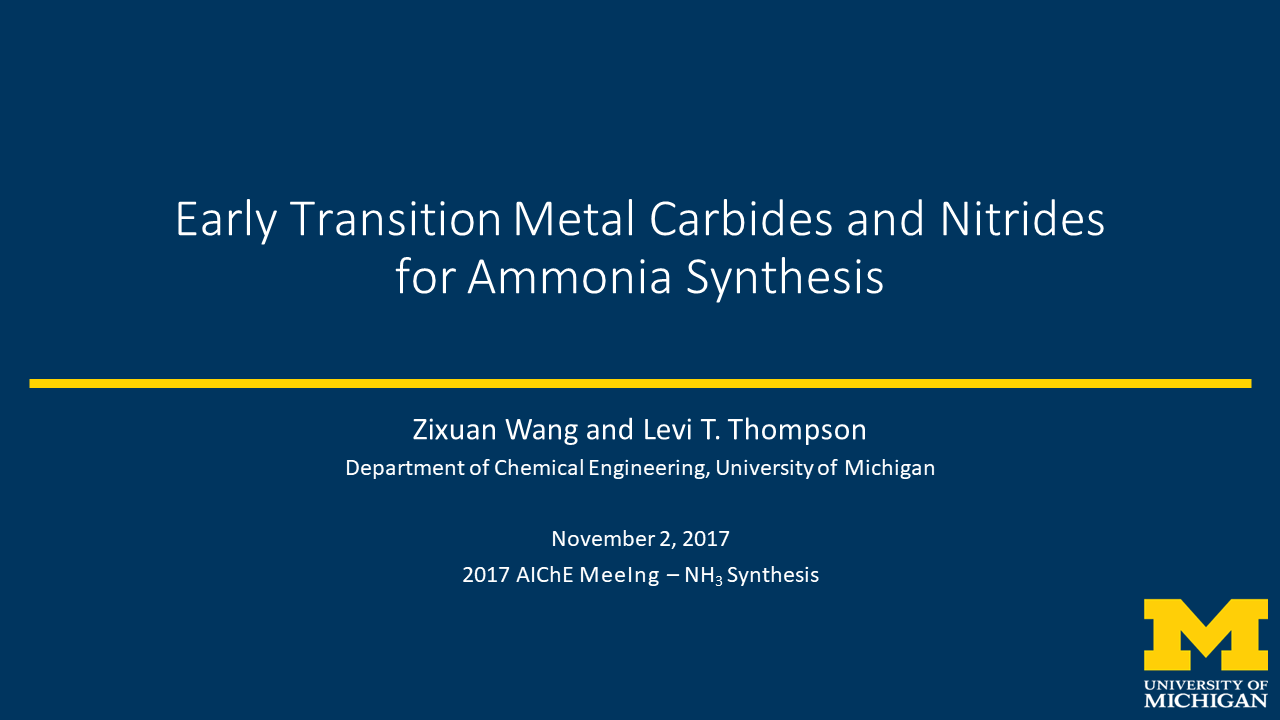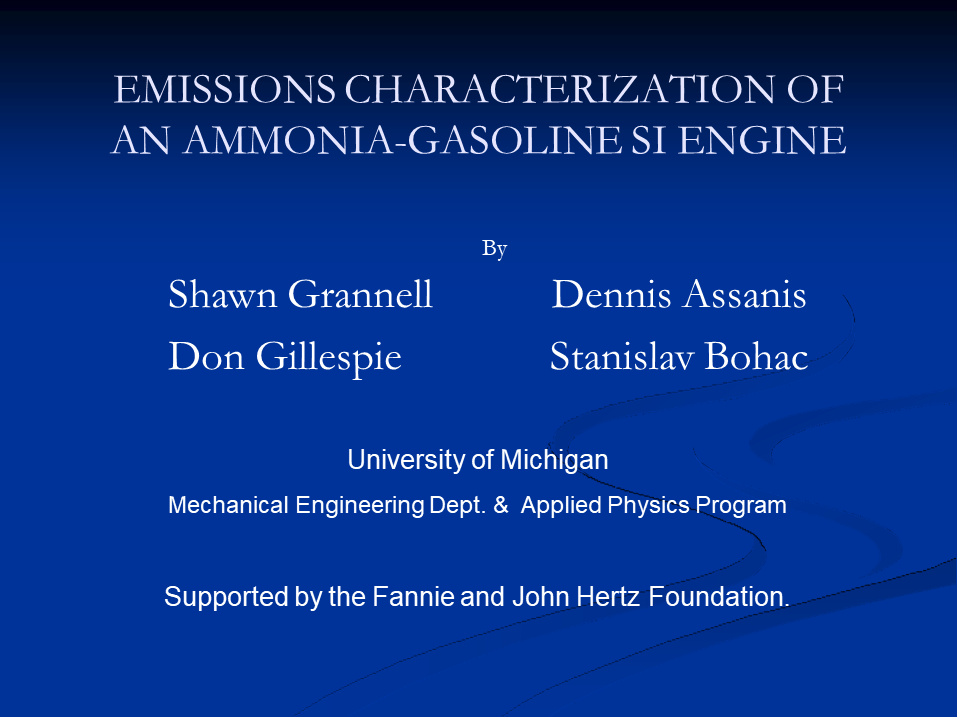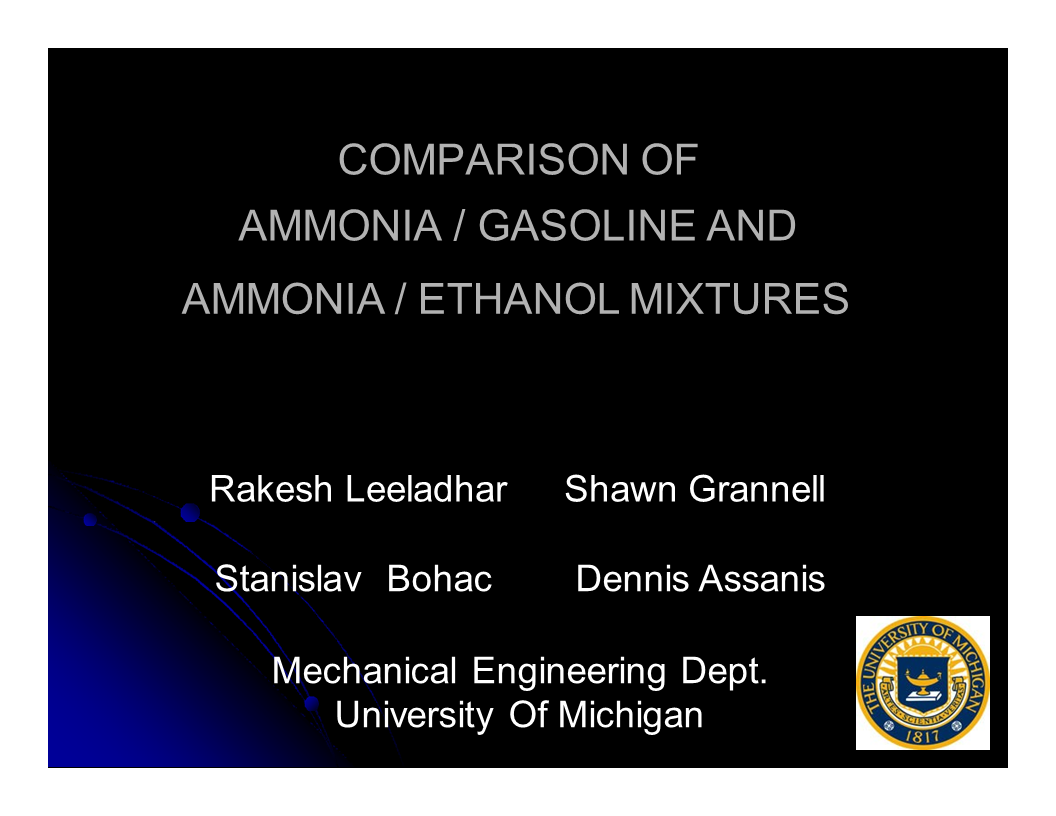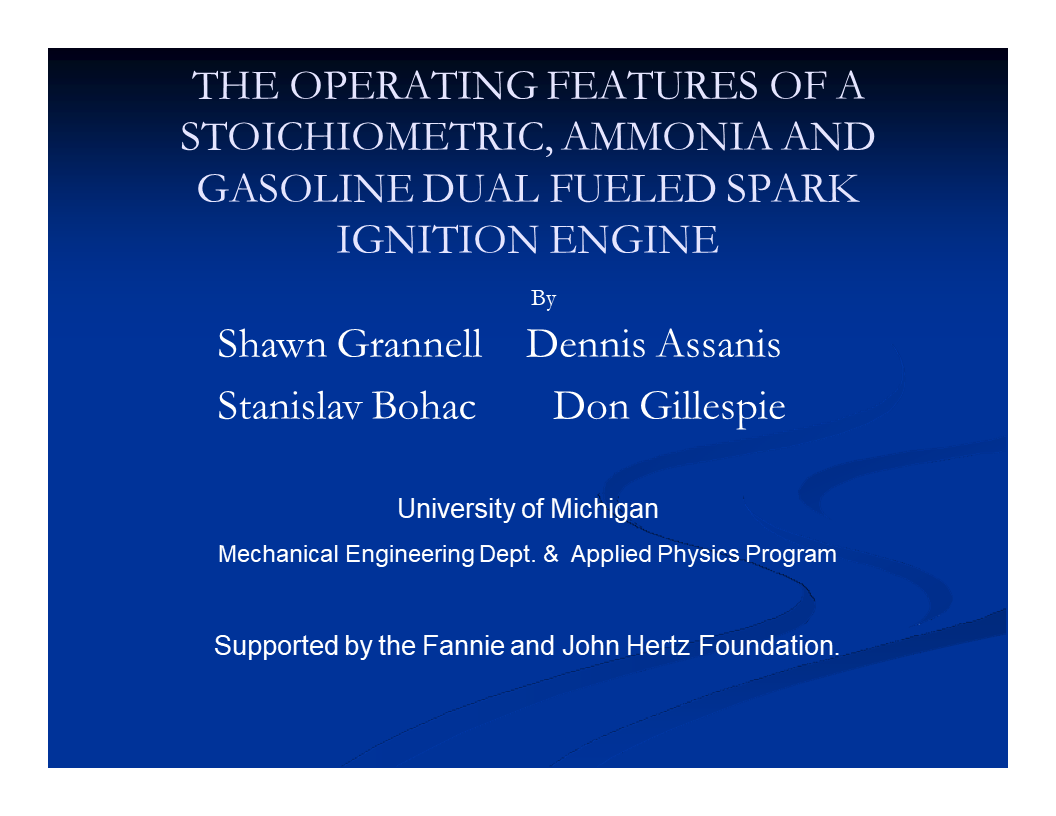More than 180 million tons of NH3 are produced annual via the Haber-Bosch process which converts N2 and H2 at high temperatures (400 – 500°C) and pressures (150 – 300 bars). Ammonia synthesis also accounts for 1-2% of global energy consumption.1 The development of higher activity catalysts that can operate under less severe conditions would enhance the economics associated with and sustainability of NH3 synthesis. Research described in this paper investigates the performance of transition metal carbide and nitride supported metals for NH3 synthesis. Previously, Mo2C and Mo2N have been reported to be more active than Ru-based catalysts, but slightly…
Content Related to University of Michigan
Presentation
Emissions Characterization of an Ammonia-Gasoline SI Engine
Emissions Characterization of an Ammonia-Gasoline SI Engine Shawn Grannell, Don Gillespie, Dennis Assanis, Stani Bohac, University of Michigan
Presentation
Comparison of Ammonia/Gasoline and Ammonia/Ethanol Fuel Mixtures for use in IC Engines
Comparison of Ammonia/Gasoline and Ammonia/Ethanol Fuel Mixtures for use in IC Engines Rakesh Leeladhar, Shawn Grannell, Stani Bohac, Dennis Assanis, University of Michigan
Presentation
Investigation of the Engine Operating Space of Ammonia/Gasoline Mixtures
Investigation of the Engine Operating Space of Ammonia/Gasoline Mixtures Shawn Grannell, Stani Bohac, Dennis Assanis, Donald Gillespie, University of Michigan



